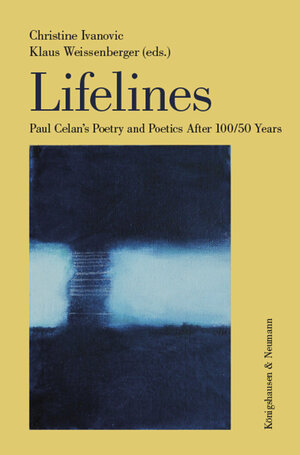Lifelines
Paul Celan‘s Poetry and Poetics After 100/50 Years
herausgegeben von Christine Ivanovic und Klaus WeissenbergerReading Paul Celan’s poetry and poetics, this volume collects the contributions of an international conference at Rice University in Houston, TX on the occasion of Celan’s 100th birthday and the 50th anniversary of his death in 2020. A new and comprehensive edition of Celan’s correspondence allows for new insights into the biographical and historical backgrounds of his poems, which can now be read and interpreted in precisely definable contexts (Wiedemann). The authors in this volume also examine Paul Celan’s and Ingeborg Bachmann’s poetic dialogue as a quest for ‘poetry as truth’ (Renker), or emphasize the dialogical moment in Celan’s prose Gespräch im Gebirg as a characteristic of the genre (Weissenberger). Selected poems from his volumes Niemandsrose and Atemwende are being
examined in regard of his aim for commemoration and witnessing (Koelle) while in another approach the impact of his response to the Holocaust upon his changing poetic is being sounded out (Colin). Deep reading of the musical composition of Celan’s poetry (Miglio), or a meticulous tracing of the transforming of the vocabulary of a newspaper article into a poem (Ryan) add new insights into Celan’s poetic practices on the basis of texts that have hardly been studied so far. New experiences such as the Corona pandemia or an exophonic approach generate contexts on their own which shape a different public perception of Celan’s poetry today (Ivanovic). Finally, new readings of Celan’s translations (Collonny and Kavett) as well as Pierre Joris’s impressive retrospective of his own decades-long engagement with translating Celan’s poetry round off this volume.






